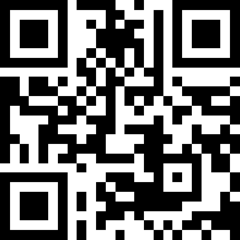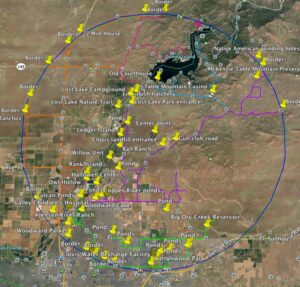| Sun | Mon | Tue | Wed | Thu | Fri | Sat |
|---|---|---|---|---|---|---|
| Potluck Lunch Sumner Peck Ranch Fall 2024 11:30 am Potluck Lunch Sumner Peck Ranch Fall 2024 @ Sumner Peck Nov 10 @ 11:30 am – 3:30 pm  FAS FALL POTLUCK Sunday, November 10, 2024 Sumner Peck Ranch 14439 N. Friant Road 11:30 am-3:30 pm (12:00 Potluck Lunch) Register HERE! All participants must agree to the FAS Liability Waiver Form when they register. Use the QR code below or the form can also... | ||||||
| FAS Board Meeting 11:00 am FAS Board Meeting @ Zoom meeting Nov 24 @ 11:00 am – 1:00 pm Contact admin@fresnoaudubon.org for login credentials |
The Fresno Audubon Society board meets monthly on the last Sunday of each month from August through May. All are welcome to attend.
The Fresno Audubon Society board meets monthly on the last Sunday of each month from August through May. All are welcome to attend.
Gary Woods made his first birding trip to Southeastern Arizona in August 2005 when he attended the Southwest Wings birding festival. Since then he’s returned to that area in early August alone with his camera 11 more times. On December 10th he will present an updated version of the show he first presented to us 6 years ago on birding Southeastern Arizona with some detailed information for those who would like to travel there themselves as well as some terrific photos of the specialties that draw birders from all over the world to this part of the country. As usual he will be giving away a door prize of one of his pictures at the conclusion of the evening. The meeting will be at the Woodward Park Library starting at 7pm. You can register for the event here.
The 2019 Lost Lake Christmas Bird Count (CBC) will take place on Saturday, December 14. We will meet at the Lost Lake Park nature trail parking lot at 7:00 a.m.
The Lost Lake CBC is one of several hundred counts that will take place in North America and beyond during December and January. These events contribute important bird abundance data to an international database. Over the years this data has provided researchers with much important information about the health of bird species in North American and beyond. You can learn more about the Christmas Bird Count program at http://birds.audubon.org/christmas-bird-count.
The Lost CBC circle (pictured above) includes Lost Lake Park, Millerton Lake State Park, Friant Bridge, grassland areas of southern Madera County, Rank Island, Ball Ranch parts of the McKenzie Table Mountain Preserve, Woodward Park, Jensen River Ranch, Woodward Lakes, Dry Creek Reservoir, and the northern reaches of Fresno/Clovis.
Participants will be divided into small groups, each responsible for counting in a designated area within the count circle. Checklists will be provided, on which numbers of individual birds and species are marked.
You needn’t be an expert birder to participant in this event. Anyone with a basic knowledge of bird species is encouraged to participate. The more eyes we have in each group, the more birds we are likely to count.
Some groups will be out for the entire day, while others will finish earlier than that. Feel free to join us even if you can only do so for part of the day. Most participants will submit eBird lists of their sightings, but for those who wish to submit paper lists, please meet the compiler (Rachel Clark) at 5:30 p.m. at Denny’s on Blackstone and Herndon. If enough people are interested, we might sit down for a post-count meal.
For more information about this event or to confirm that you will participate, please contact Rachel Clark at 515-357-0122 or tanagergirl@gmail.com.
Registration: Please also register for the event here.
Map to meeting place:
The Fresno Audubon Society board meets monthly on the last Sunday of each month from August through May. All are welcome to attend.
The Fresno Audubon Society board meets monthly on the last Sunday of each month from August through May. All are welcome to attend.
This meeting will serve as our February Board meeting.
Join us for dinner at BJ’s Brewhouse with Biopsychologist Susan Schneider. Susan has over 25 years of research and teaching experience in the science of consequences and nature-nurture relations. She’s also an avid birder, field trip leader, and environmental activist. President of San Joaquin Audubon (just stepped down this summer), she was on the Tropical Audubon board in Miami and is a past president of Mountaineer Audubon in West Virginia. She’s published numerous scientific articles and book chapters, and has been a faculty member at St. Olaf College, Auburn University, and Florida International University; she’s currently a Visiting Scholar at University of the Pacific. Her book for the public, The Science of Consequences: How They Affect Genes, Change the Brain, and Impact Our World (see www.scienceofconsequences.com) was a selection of the Scientific American Book Club and took her on a 3-year international book tour. It describes the science of reinforcement learning, its important role in the larger realm of nature-nurture relations, and its many beneficial applications for people and animals. Schneider is currently focused on fighting climate change: giving talks, consulting professionally, and co-chairing the San Joaquin County Climate Action Coalition.
Please register for the event here.
Please join us for an evening discussion of bird intelligence by Biopsychologist Susan Schneider, PhD. Susan has over 25 years of research and teaching experience in the science of consequences and nature-nurture relations. She’s also an avid birder, field trip leader, and environmental activist. Her talk is titled No Birdbrains Here: The Latest on Bird Learning, Instinct, and Intelligence. Birds can learn from consequences, as we and many other species can: Baby chicks learn to peck accurately, wild mockingbirds can learn to recognize individual people, and pigeons were able to learn to categorize art and music. Even instinctive behaviors like imprinting can be more flexible than scientists used to think, and songbird song appears particularly malleable. This talk will explore bird learning and intelligence, from everyday foraging, to learning through observing, to tool use. Such adaptability may be critical as wild birds attempt to adjust to the many threats they face. Scientists also take advantage of this powerful learning ability to help save endangered species.
Please register for the event here.
Map to the UC Center:
All FAS Board meetings are open to the public.



